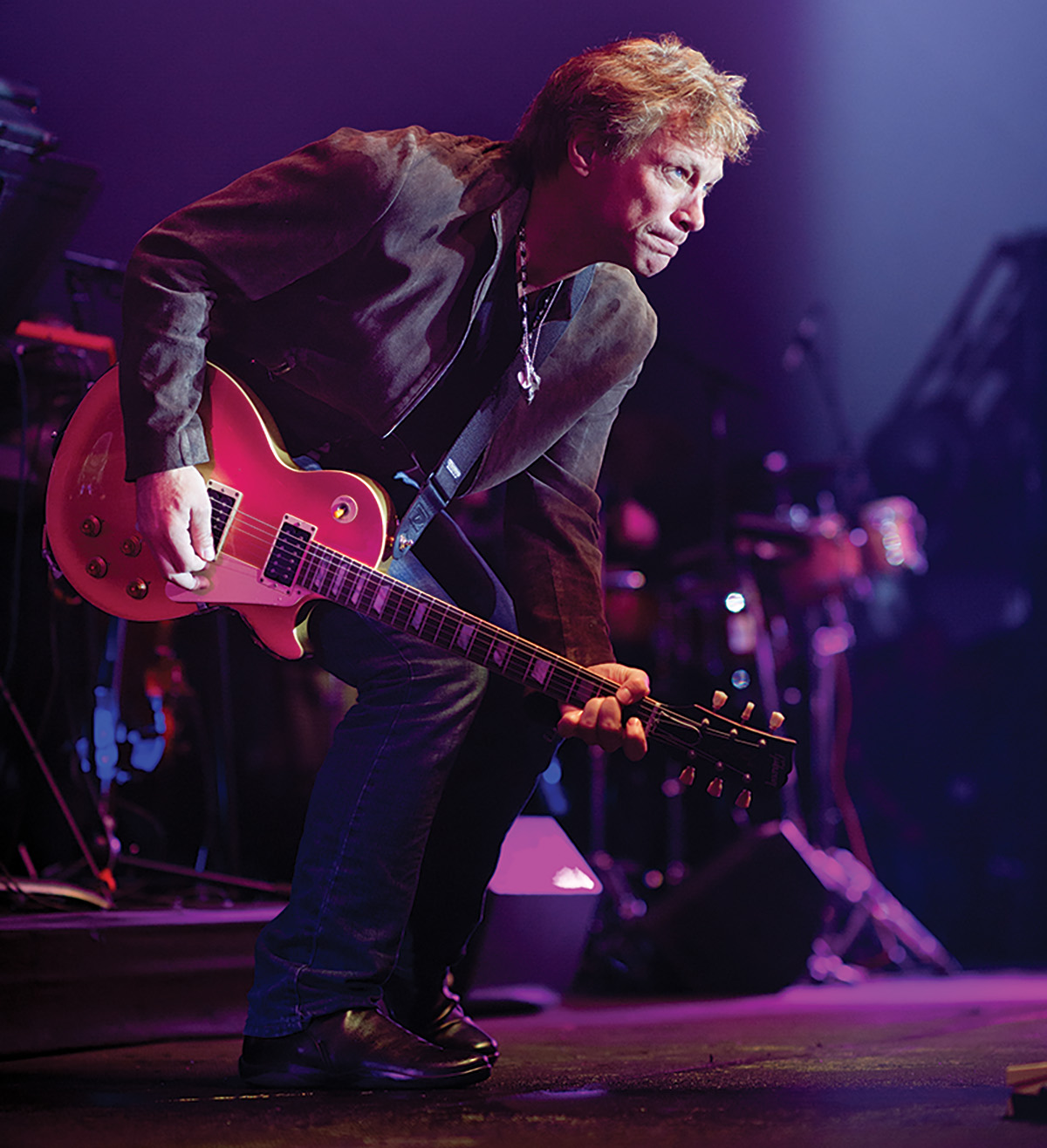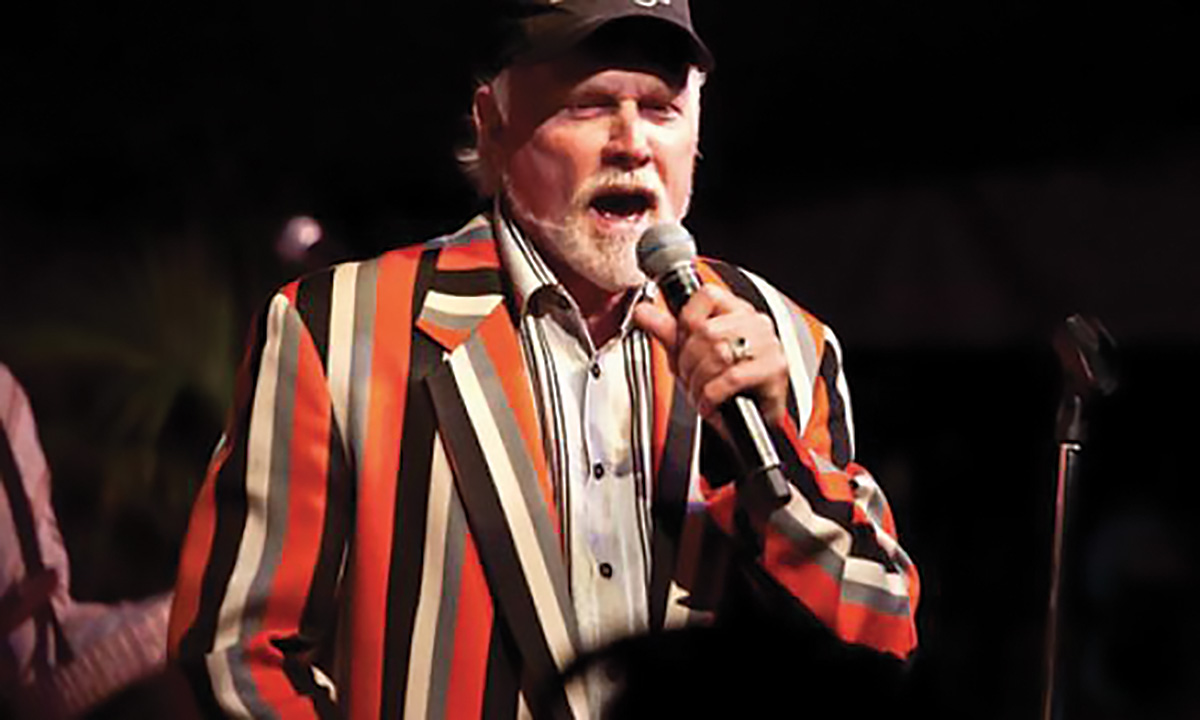When Reunions Banned Rock Stars, Cover Bands Stepped In
Will rock & roll Hall of Famers ever play Reunions again?
Probably not if they charge more than $80,000, scored a Top 40 hit in the past two decades, or have more than 30,000 followers on social media, because those are some of the band checks that Nassau Hall now performs to decide who can play at Reunions bashes.
The new entertainment policy, which was implemented without fanfare five years ago, has meant more cover bands and fewer crowds outside the stockades of classes who formerly hosted rock stars.
Thanks to classmates’ contributions, Stu Rickerson ’71 has hired four Rock & Roll Hall of Famers for major reunions: Smokey Robinson, soul singer Darlene Love, Creedence Clearwater, and Mike Love and the Beach Boys twice.
“There’s nothing like the real thing. It creates a special buzz and people talk about it for years,” says the retired attorney.
Mike Novogratz ’87, a cryptocurrency billionaire and bona fide hard partier, footed the twin bill when the Class of 1987 hired Bon Jovi and Joan Jett to perform on back-to-back nights in 2012. He also engaged Duran Duran for his 30th to the tune of $600,000.
“I would say most of my classmates thought it was fun and great. I’m sure there were a couple of people who didn’t love the onslaught of underclassmen and others, and it was a little bit of a security hassle for the University,” says Novogratz.
Mibs Southerland, director of alumni communities and longtime majordomo of Reunions, says the University always had “guardrails” in place for entertainment contracts, but before 2019, they afforded classes “a little bit more latitude.”
The review criteria do not automatically rule out a top-of-the-charts band, but no famous names have played at Reunions since they were put in force.
Security concerns were the principal driver behind the new rules, but it was also about “preserving the spirit of Reunions,” says Southerland. For years, the rumor mill created “almost a frenzy on campus with the thought of a big act performing at Reunions.” That stretched security and other staff thin at a time when they were already dealing with crowds that now top 25,000.
“Reunions is not about being at a concert. It’s about coming back and reunioning with your classmates and other alumni,” says Southerland. She declined to say how many bands Nassau Hall has nixed.
Jim Blair ’61, whose class hired headliners from Chubby Checker to the Beach Boys over the years, says, “The new rules were inevitable. The [undergraduate] class size has more than doubled, the campus space for Reunions has shrunk, and crowds are less respectful of authority.”
“Word travels superfast,” says David King Jr. ’84, and with thousands of people “running around campus, if you scream ‘Bon Jovi,’ it’s almost like screaming ‘Fire!’”
Cover bands for Queen, the Beatles, and the Grateful Dead, and rollicking party bands like Rubix Kube and Right On Band have filled the bill for dozens of classes. A Neil Diamond impersonator fooled some revelers at the Class of 1963’s 50th into believing he was the genuine article.
But even for top-caliber cover bands, classes often rely on a few deep-pocketed alumni to pick up much of the entertainment tab. “Otherwise, the cost to attend Reunions, already high for many people, would skyrocket,” says Talbot Logan ’91.
Jennifer Daniels ’93, as then-president of the Alumni Association, saw Duran Duran at 1987’s 30th. “It was amazing — but also just a lot of people doing crazy things to try to get in,” says Daniels. Her class hired “a Prince cover band for our 25th that was a ton of fun” and at other majors relied on “great deejays including FoPo, which is actually from our era on campus.”
John “Jay” Weaver ’92 is a founder of FoPo DJs, which provided the beat for parties all over campus in his student days and has since played at numerous Reunions. As class entertainment chair, he hired Naughty By Nature, a Grammy-winning hip-hop trio, for its 25th. It was a crowd-pleaser.
“We may have only paid 40 or 50 grand, and it all came out of the registration fees,” says Weaver, a software developer. “We didn’t have to raise any special money.”
Reunion planners for the Class of 1988 approached representatives of the singer-songwriter Prince about possibly performing at its 25th reunion in 2013, and “he had interest,” says James H. Simmons III ’88. However, they felt it would not be responsible “to bring in an act of that magnitude if we were not going to be able to achieve our fundraising goals,” says Simmons, a longtime Annual Giving leader. “The primary objective is supporting the University.”
The ever-popular Right On Band, fronted by Nigel Holland, blasts out Motown, disco, and funk from the 1970s with 10 horn, guitar, and drum players in outlandish costumes and two go-go dancers gyrating to strobing lights. The band has played the White House, Times Square on New Year’s Eve, and in dozens of countries, “and a lot of it is thanks to the exposure we’ve gotten from Princeton alumni Reunions,” says Holland.
The end of the rock star era has lightened the load on the shoulders of Devin J. Livi, director of campus grounds and facilities, and his work crews, who each spring erect 1,400 yards of stockades and build stages and dance floors for 14 major reunions sites. The amount of power “needed for sound systems and light shows could be challenging. Stage size and height also got a bit crazy,” according to Livi.
Anthony Fittizzi ’97 chaired the Committee on Reunions from 2015 to 2017 when consideration was first given to putting the brakes on booking rock stars. “We found from surveys that the biggest thing that alums focused on when they returned for Reunions was actually connecting with all the old classmates and friends” — not who the band was.
Years ahead of its 25th, the Class of 1997 mulled trying to book Green Day or another famous band, but stuck with a cover band. “We’ve had some great ones over the years,” says Fittizzi. “One of my favorites was Bon Journey,” which played at his 15th while the real Bon Jovi was rocking it out under the Class of 1987 tent. Fittizzi, a financial planner, was never tempted to peek in. “We were having a plenty good time in our tent.”
Christopher Connell ’71 is a freelance education writer in Alexandria, Virginia.














No responses yet